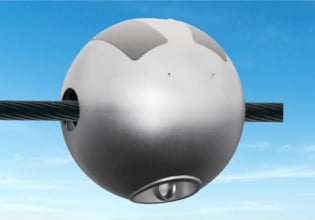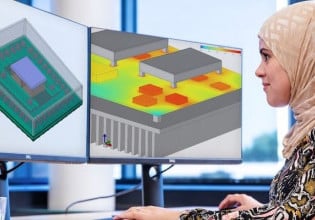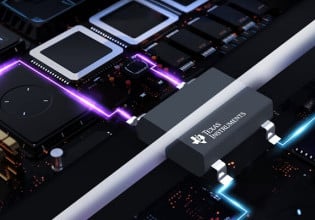Custom ASIC Development for Electronic Systems: Benefits and Challenges
An integrated circuit, also known as a chip, is a miniaturized electronic circuit comprising interconnected semiconductor components commonly made of silicon. IC technology has transformed the electronics industry by allowing a large number of electronic components to be integrated into a single chip which can then be mounted onto a printed circuit board and connected to other chips and circuits to form a complex electronic system.
This article is published by EE Power as part of an exclusive digital content partnership with Bodo’s Power Systems.
While general-purpose ICs are typically designed to perform a single function required in diverse applications, modern electronic systems often require multiple combinations of general-purpose analog and digital ICs, referred to as a chipset.
As electronic systems continuously evolve and become more complex, the demand for customized functionality and the size of chipsets has grown to a point where designing them onto a single large PCB can offset the low cost of their components. Custom application-specific integrated circuits (ASIC) became more prevalent to meet this demand. Compared to using multiple general-purpose ICs on a PCB, ASICs offer a more tailored and cost-effective solution that can meet specific application requirements.
Until recently, only subsystem designers for specialized equipment (such as smartphones) found developing a system-on-chip (SoC) solution feasible. However, the industry has now reached a point where all types of subsystem designers are considering combining the system functionality of their chipsets into a single customized ASIC, thanks to the reduction in process geometries and fabrication costs.
This article explores the many benefits of adopting a custom ASIC development approach.
ASIC Advantages and Challenges
Replacing a sizeable PCB-mounted chipset with an ASIC offers numerous advantages that should not be overlooked. Taking a customized approach to ASIC production makes it possible to address some of the original challenges encountered during the product design phase. This approach can lead to significant opportunities for reducing overall bill-of-materials (BOM), improving efficiency, and integrating intellectual property (IP).
It is important to note that ASICs are not solely reserved for new designs. They can replace several general-purpose components and field programmable gate arrays (FPGA), reducing the BOM and other associated costs. An ASIC also considerably reduces the physical size and weight of the overall electronics assembly, further reducing cost and helping to extend the battery life of wearable devices.
While ASICs offer numerous advantages, not every company can leverage them, as their development requires substantial financial investment and specialized technical knowledge. The expenses associated with ASIC development can vary extensively, depending on factors such as the case's complexity, technology nodes utilized, the need for custom IP, and the cost of creating manufacturing masks. As a result, the costs can escalate anywhere from hundreds of thousands to millions of dollars, rendering ASIC development inaccessible for several companies.
Companies seeking to adopt ASIC solutions should possess in-house expertise to spearhead the development project. This entails having an in-depth understanding of the application and the precise requirements of the target market, coupled with the capacity to manage the design and development process.

Figure 1. Infineon's ASIC development. Image used courtesy of Bodo's Power Systems [PDF]
Infineon and ASIC Design
Infineon is an experienced and reputable ASIC design and manufacturing company with over four decades of expertise in developing customized ASICs for various applications, including automotive, industrial, medical, and IoT. The following advantages make Infineon a reliable partner for ASIC developers looking to create customized integrated circuits for various applications:
- Extensive technical expertise: With an impressive track record in power electronics, sensors, and security, Infineon is widely recognized as a leading semiconductor manufacturer. By partnering with Infineon, ASIC developers gain valuable access to extensive technical expertise and resources, enabling them to develop more sophisticated ASICs.
- Advanced manufacturing capabilities: Infineon has state-of-the-art manufacturing facilities, including 300 mm wafer processing and advanced CMOS technologies. Access to these can help ASIC developers create higher-performing and more power-efficient ASICs.
- Supply chain stability: Infineon has a well-established supply chain with a wide range of suppliers and partners which can ensure a stable supply of components for ASIC development.
- Reduced time-to-market: Infineon's proven track record of developing complex semiconductor products can help accelerate ASIC development and time to market.
- Cost savings: Partnering with Infineon can help reduce the overall cost of ASICs development. Infineon leverages economies of scale to reduce manufacturing costs, and our expertise can help optimize ASIC design for cost-effectiveness.
Besides the advantages mentioned above, Infineon offers numerous other benefits to its partner companies. These include optimized partitioning, top-notch IP protection, exceptional product quality, and a steadfast commitment to timely delivery in required volumes. To achieve successful outcomes, Infineon works closely with its customers through a collaborative 5-step journey towards their first ASIC. This approach ensures seamless communication and allows us to tailor our services to meet customers' needs (Figure 2).

Figure 2. Infineon's 5-step journey for custom ASIC chips. Image used courtesy of Bodo's Power Systems [PDF]
Feasibility
The first step begins with a feasibility analysis in which Infineon studies a customer's requirements and pain points to ensure that a viable solution can be delivered through a long-term engagement. Then one of multiple working and business models is selected and tailored to best match the customer's needs. Infineon provides a complete turnkey design service for companies without experience developing an IC. Still, those who already have an experienced design team and wish to contribute significantly to the design of their ASIC can equally find a perfect partner in Infineon. Multiple IP libraries and ASIC technologies are provided, ranging from industrial to medical and consumer ICs on wide-bandgap or standard silicon processes.
Concept
Next, Infineon defines complex integration concepts, including implementation, project setup, and schedules. Technology is selected from a choice of SoC, or a System in Package (SiP), and the most appropriate ASIC packaging is chosen.

Figure 3. Infineon supports SiPs from simple wire-bonded chip-by-chip solutions down to substrate-based micro modules with even embedding of dies and several layers. Image used courtesy of Bodo's Power Systems [PDF]
Development
Infineon uses industry-leading electronic design automation (EDA) tools during the design stage. Using standard interfaces and tools helps to simplify integration with the customer's design flow. Existing FPGA designs can be quickly converted to an ASIC using an automated process, and extra functionality can be integrated if required.
Manufacturing
Infineon has 20 wholly owned frontend and backend manufacturing facilities at different locations worldwide. It has long-established partnerships with many major silicon foundries, assemblies, and test fabs. This frees the customer to concentrate on its core activities while Infineon takes responsibility for the stability and continuity of ASIC production.

Figure 4. Extensive package portfolio available as well as fully custom packages. Image used courtesy of Bodo's Power Systems [PDF]
Logistics
Aligning with the customer to forecast demand and allocate the required production capacity ensures no supply bottlenecks can develop. Infineon understands supply chains and guarantees that raw materials reach the manufacturing plant before the reserved production slot commences. Distributing from the center closest to the customer's premises ensures that ASICs are delivered quickly. Automated demand planning and buffer stocks are also used to ensure uninterrupted customer supply.

Figure 5. Infineon's global manufacturing network and customer-centric ASIC design services provide a comprehensive solution for customers looking to develop and produce high-quality, reliable ASICs. Image used courtesy of Bodo's Power Systems [PDF]
ASIC Summary
ASICs offer undeniable benefits, from cost reduction to increased performance and energy efficiency. However, designing ASICs is a complex process that requires extensive expertise and experience. Collaborating with an established custom solutions design and manufacturing specialist, such as Infineon, grants companies the advanced technology and know-how necessary to develop ASICs that align with their specific needs.
With a wealth of experience and expertise in the field and a solid commitment to research and development, Infineon is well-suited to be an ideal and reliable partner for companies looking to create custom solutions. By leveraging our industry-leading resources and knowledge, we help companies navigate the intricacies of ASIC development, from conception to production, to develop optimized solutions that exceed their expectations.
For more information, please visit Infineon's dedicated ASIC website.
This article originally appeared in Bodo's Power Systems [PDF] magazine.






